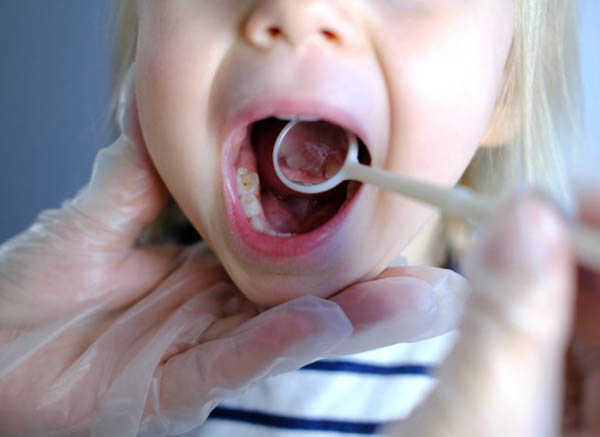
Why They Matter and How to Prevent Them
Parents often assume that cavities in baby teeth aren’t a big deal since those teeth will eventually fall out. However, caring for baby teeth is crucial to your child's long-term oral health. Cavities, if left untreated, can lead to pain, infection, and even affect the development of adult teeth. In this blog, we’ll explain why cavities in baby teeth matter and offer tips on how to prevent them.
Why Cavities in Baby Teeth Matter
Baby teeth, also called primary teeth, play a significant role in your child's development. They help your child chew, speak clearly, and maintain the space necessary for permanent teeth to grow in properly. When a cavity forms in a baby tooth, it can cause a host of issues, including:
- Pain and Discomfort: Just like adult teeth, cavities in baby teeth can cause toothaches, making it hard for your child to eat, sleep, or concentrate at school.
- Infection: Untreated cavities can lead to infections, including painful abscesses that require urgent dental treatment.
- Impact on Adult Teeth: If a baby tooth is lost prematurely due to decay, it can cause misalignment of the permanent teeth and may result in the need for orthodontic care later on. For more insight into how dental development can be affected by baby teeth, check out our blog on Dental Development Milestones.
Common Causes of Cavities in Baby Teeth
Cavities are caused by bacteria that feed on sugars in food and drinks. The bacteria produce acid that wears down the enamel, creating holes in the tooth. Some common causes include:
- Sugary Snacks and Drinks: Excessive consumption of sugary foods, such as candy, juice, or even sticky snacks, can increase the risk of cavities.
- Poor Brushing Habits: When children do not brush or floss regularly, plaque builds up on their teeth, leading to decay.
- Prolonged Bottle-Feeding or Sippy Cup Use: Allowing your child to fall asleep with a bottle or constantly sip on sweet liquids throughout the day can increase the likelihood of cavities.
- Nighttime breastfeeding may result in cavities, particularly on the upper front teeth.
How to Prevent Cavities in Baby Teeth
The good news is that cavities are preventable! Here are a few steps you can take to keep your child's teeth healthy and cavity-free:
1. Start Brushing Early: Begin cleaning your baby’s gums even before the first tooth appears. Once teeth start to emerge, brush them twice a day with a small, soft-bristled toothbrush and non-fluoride toothpaste.
2. Limit Sugary Snacks and Drinks: Reduce your child's intake of sugary snacks and drinks. Offer healthier alternatives like fruits, vegetables, and water.
3. Practice Good Oral Hygiene Habits: Teach your child to brush their teeth for two minutes, twice a day. You can make it fun by using a timer or playing their favorite song during brushing time! For more ideas on how to encourage good brushing habits, check out our blog on 9 Fun Ways to Get Kids to Brush Their Teeth.
4. Avoid Prolonged Bottle-Feeding: Try to transition your child from a bottle to a cup by their first birthday, and avoid letting them fall asleep with a bottle. Do not put any sugary liquids in a bottle.
5. Schedule Regular Dental Checkups: Bring your child to the dentist for regular checkups, usually every six months, starting around their first birthday. Early dental visits allow the dentist to catch any issues early and provide preventive care such as fluoride treatments or dental sealants.
What to Do if Your Child Has a Cavity
If your child has a cavity, it’s essential to get it treated promptly. Dr. Duffy will discuss the best treatment option, which may involve a filling or other dental procedure. Early intervention can prevent the decay from spreading and save your child from experiencing unnecessary pain.
At Duffy Dental Ranch, we believe that healthy smiles start with early prevention. If you have any concerns about your child’s teeth or want to schedule a checkup, don’t hesitate to contact us!

 Read Our Reviews
Read Our Reviews